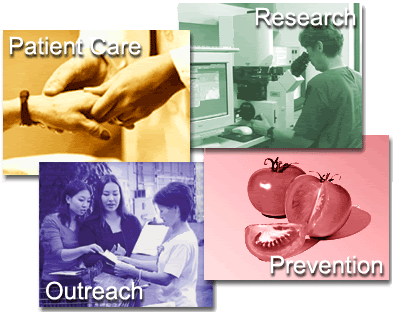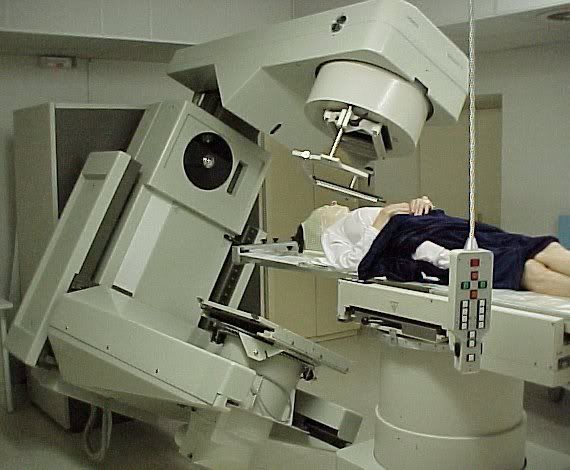Barriers in Providing Psychosocial Support for Patients With Cancer.
There is growing evidence that the provision of effective psychosocial care improves the outcomes of patients with cancer. However, providing psychosocial care for patients with cancer can place specific burdens on health professionals. The effectiveness of the care provided is dependent on the training, skills, attitudes, and beliefs of staff.
The Clinical practice guidelines for the psychosocial care of adults with cancer have been developed by the National Breast Cancer Centre and the National Cancer Control Initiative in Australia as a benchmark for the psychosocial needs of patients with cancer. These evidence-based guidelines are designed for use by all health professionals who care for people during the course of cancer diagnosis and treatment. Central to the successful implementation of these guidelines is the ability for health professionals to exercise the necessary assessment and communication skills, for example, discuss prognosis and treatment options available with the patient or the move from curative to palliative treatments. We know that health professionals can have low confidence in exercising these skills that can result in a failure by health professionals to provide effective psychosocial care to patients with cancer.
Discussion
The nurses in this study reported that they constantly faced a number of professional and personal issues when addressing the practical, emotional, and psychological demands of patients with cancer. There was a general recognition of the uniqueness of each patient's needs and that these needs could change over time whether it be the timing of the provision of information or assisting the move from curative to palliative treatment. It appeared, however, that the issues faced in constantly meeting these needs had the ability, at times, to deeply affect the nurses' level of contentment with their personal life.
The findings from this study suggest that professional support is an area that may be improved in an effort to improve job satisfaction, particularly in responding to the expressed feeling of not working as a team member. As in Barrett and Yates' study that found over one third of nurses indicated dissatisfaction in the degree to which they felt part of a team, nurses in this study also did not feel team members. This was voiced in 2 ways: a feeling of working in isolation and not being included in the communication processes. The support offered to nurses working as primary nurses may need to improve to counteract the current feeling of working in isolation. However, it should be remembered that at the time of the study, the ward had just commenced the Nursing Care Delivery System pilot project. Providing feedback to nursing staff regarding the progress of patients after discharge from hospital provides not only information about patient progress but also reinforces their contribution to the interdisciplinary team, and this may be beneficial because it can then foster a sense of unity among staff members.
There is a recognized deficit in the literature concerning the effects of providing care to patients with cancer on the quality of life of nursing professionals. The findings suggested in this study support those of Ergun et al, who found that providing care to patients with cancer has a negative impact on the quality of life of oncology nurses. An Australia study, conducted by Barrett and Yates, found that emotional exhaustion is a very real concern among oncology/hematology nurses with more than 70% (n = 243) of their sample experiencing moderate to high levels of stress.
High workload and a lack of available time were both cited by the participants as potential barriers that limited their ability to sit down and engage in conversation with patients to elicit their specific needs. These findings are supported by Barrett and Yates' findings where dissatisfaction with workloads was found to be a major concern: nearly 40% of the nurses in their study perceived their workloads to be excessive. The workload issue is exacerbated by an overall reduction in nursing supply. In Australia, between 1995 and 1999, there was an overall decrease in full-time equivalent nurses per 100,000 population. This reduction in full-time equivalency is thought to be associated with an overall decrease in the level of nursing supply. Over the past 10 years, there has also been the trend for registered nurses to become part-time workers with national figures showing that the majority (53.7%) are working part-time.
Findings from this study in relation to ineffective communication processes are similar to McCaughan and Parahoo's findings. They found that nurses' self-perceived educational needs in caring for patients with cancer included the need for more knowledge and skills in providing psychosocial care and communication. Interestingly, the nurses in their study reported higher competence in providing physical care than in psychosocial care.
The development of effective strategies to assist clinicians to use communication skills in the provision of care is fundamental to achieving optimal psychosocial outcomes for patients. Such communication is vital to enable the provision of appropriate, accurate, and detailed information to the patient at key stages relating to the pathological process of the disease. Because this information has the potential to affect the patient's decision-making process, the provision of information must be appropriate, accurate, and detailed. Hematology is a dynamic speciality that incorporates the implementation of new and rapidly changing treatment regimens.
Consideration must be given to the timing of the information. To successfully meet these demands, effective communication skills are required. Wilkinson believes that in general, nurses' communication skills are inadequate and have not improved over the past 20 years. Training in communication skills can assist clinicians to improve, and continuing training in the appropriate clinical setting may be beneficial, given that skills need to be reinforced and consolidated over time.
These findings do support the development of a framework that addresses the personal and professional issues reported by experienced registered nurses as barriers to the delivery of psychosocial care. Clinical supervision is well recognized in the literature as an effective strategy for enhancing professional development, promoting self-awareness, and providing support and has been used extensively across professional groups. Clinical supervision has the potential to assist nurses with finding creative solutions to patient problems. This potential can be realized through using an action learning approach to clinical supervision. Action learning uses a group process of learning and reflection, with an emphasis on getting things done. A key feature of action learning is the focus on challenging assumptions but also legitimizing the reflection that is a necessary part of the process. By incorporating group process into an action learning model means that nurses will find their own way to address specific issues encountered. The combination of these 2 approaches holds the potential to inform the knowledge, skills, and attitudes of nurses providing psychosocial care to patients with cancer.
A clinical supervision and action learning model is proposed by the authors. The proposed clinical supervision and action learning model is an interactive approach designed to enhance the communication skills of nurses and as such will assist nurses to manage difficult events and to reduce their stress through structured learning and reflective practice. It is proposed that individuals will learn with and from their peers by reflecting on real experiences and working on real problems. Data from this study have highlighted the need to include opportunity for nurses to discuss their own difficulties with patients; hence, such an approach was deemed preferable to a didactic teaching approach. The research team is currently giving further consideration to the implementation process of the proposed model.
Conclusion
It is clear from the findings of this study that the psychosocial needs of patients with cancer are dynamic. At present, a number of barriers are perceived to exist that impedes delivery of care to address these needs. In addition, there is clearly a professional and personal impact upon the nurse. However, for nurses to be effective in this area of care delivery and to improve patient outcomes, they must have the necessary skills and support. Therefore, a clinical supervision and action learning model with management, education, and support functions has been proposed. Such a model needs to address both the skill needs and support needs of registered nurses through the use of available evidence.




0 Comments:
Post a Comment
<< Home